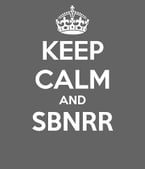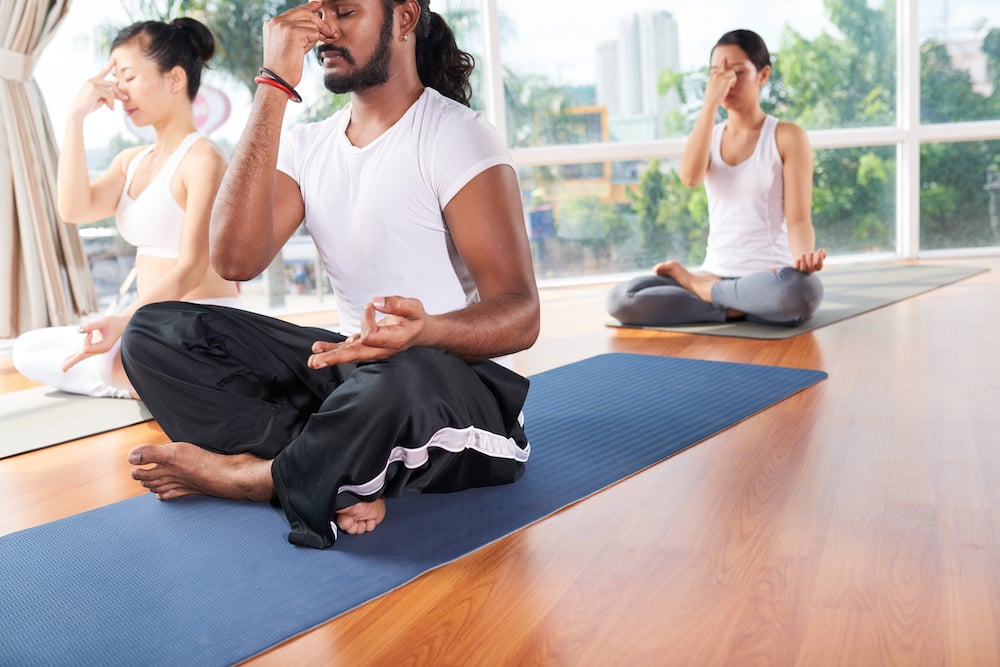Stress Less!
• Social distancing is fine. Social isolation is not. As more of the world goes into shelter in place mode, it’s important to maintain social connections. Call friends and family members and turn that video camera on for your remote work meetings.
• When Experiencing Anxiety, Make It RAIN: Recognize what’s going on in your mind and body. Allow the experience to be there, just as it is. Investigate your thoughts & emotions with kindness. Non-Identify: you are not your thoughts & emotions.
• Take a News and Social Media Break: Over the next few weeks, visit news and social media sites with care. Twice a day is plenty. Instead, improve your wellbeing by focusing on the smaller tasks that are in your direct control.
• When Stressed, Use SBNRR: The Stop - Breathe - No tice - Reflect - Respond technique helps to interrupt the wandering mind to bring you back to a point of calm and focus… and especially when you’ve been triggered.
tice - Reflect - Respond technique helps to interrupt the wandering mind to bring you back to a point of calm and focus… and especially when you’ve been triggered.
• Make Gratitude a Daily Practice: Each day when you wake, name three things you’re grateful for. Do the same when you go to bed. Encourage your family to incorporate this helpful practice to train a positive mindset during this challenging time.
Get Moving!
Now more than ever is a time to focus on your fitness, health and to go out of your way to keep your body moving. Here are some tips on how to stay on top of your workouts:
• Change your mindset: It’s important to think about what exercising does for your health. Working out is not only beneficial for your physical health, but for improving your mental well-being, too. We live in a chronically stressed-out society –– especially right now. The best thing we can do is manage our stress, and workouts are a great tool for this.
• Make a plan— and stick to it: It’s easy to prioritize work commitments, house cleaning and taking care of others, and forget about yourself. Creating a workout schedule for the week is a great way to be motivated and stay on track.
• Get an accountability partner: If you have a hard time holding yourself accountable, find an online community or workout friend who can help you stay committed to exercising. Working out with a group over video chat, like Zoom or FaceTime, will also help you maintain connections with the outside world while practicing social distancing.
• Use social media: Many fitness experts are using social media platforms like Instagram and Facebook for personal training and leading virtual workout classes. There are also several apps that are being offered at a reduced cost or even free for a limited time. (Like Peloton. Sign up by April 30 and get a FREE 90 day trial)
Eat Wisely!
Eat a well-balanced diet to be on your way to leading a healthy life. Here are a few tips to get you started:
• Eat a variety of vegetables dark green, red and orange, and legumes (beans and peas).
• Eat a variety of fruits especially whole fresh fruits, but may be canned or frozen.
• Choose foods that are high in fiber (whole-grains)—eat 3 ounces or more of whole-grain cereals, breads, crackers, rice, or pasta per day.
• Choose fat-free or low-fat dairy including milk, yogurt, cheese, and/or fortified soy beverages.
• Eat an assortment of protein foods including seafood, lean meats and poultry, eggs, legumes (beans and peas), soy products, and nuts and seeds.
• Avoid foods that are high in saturated fat like butter, whole milk, meats not labeled as lean, and tropical oils such as coconut and palm oil.
• Replace saturated fats with unsaturated fats such as canola or olive oil.
• When selecting and preparing foods choose lean (skinless), low-fat or fat-free varieties, and do not add fat when you cook.
• Consume less than 10% of your daily calories from added sugars which include syrups and other caloric sweeteners. When sugars are added to foods and beverages, they add calories without contributing essential nutrients. Naturally occurring sugars, such as those in fruit or milk, are not added sugars.
• Choose foods with little added salt and prepare foods without salt when possible. Adults who have high blood pressure (pre-hypertension and hypertension) should limit intake to 1,500 mg of sodium per day.
Keep track of your progress!
When you partner with Ulliance, our Life Advisor Consultants are always just a phone call away to teach ways to enhance your work-life balance and increase your happiness.
The Ulliance Life Advisor Employee Assistance Program can help employees and employers come closer to a state of total well-being.
To learn how we can help, give us a call at 866-648-8326.


